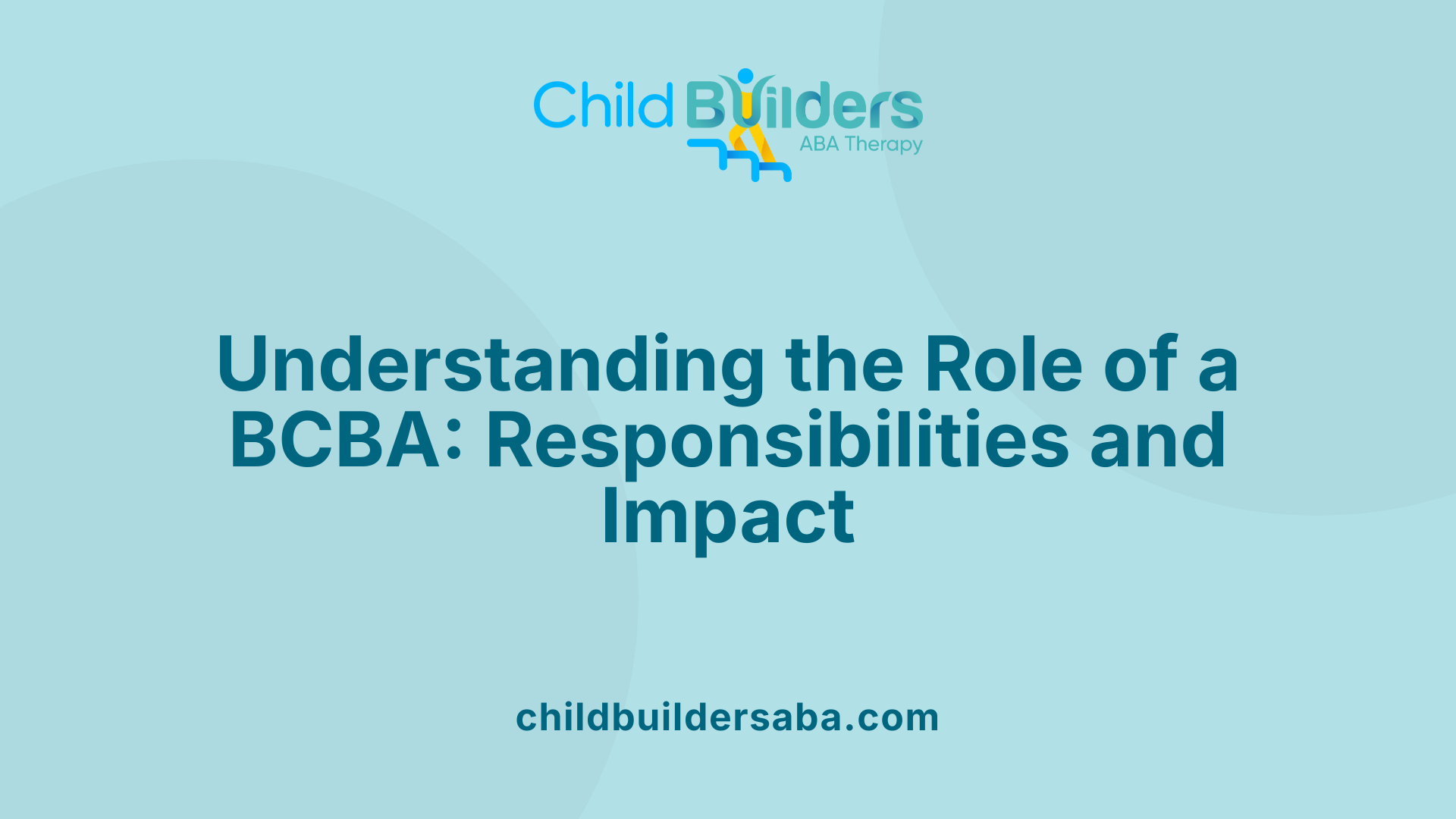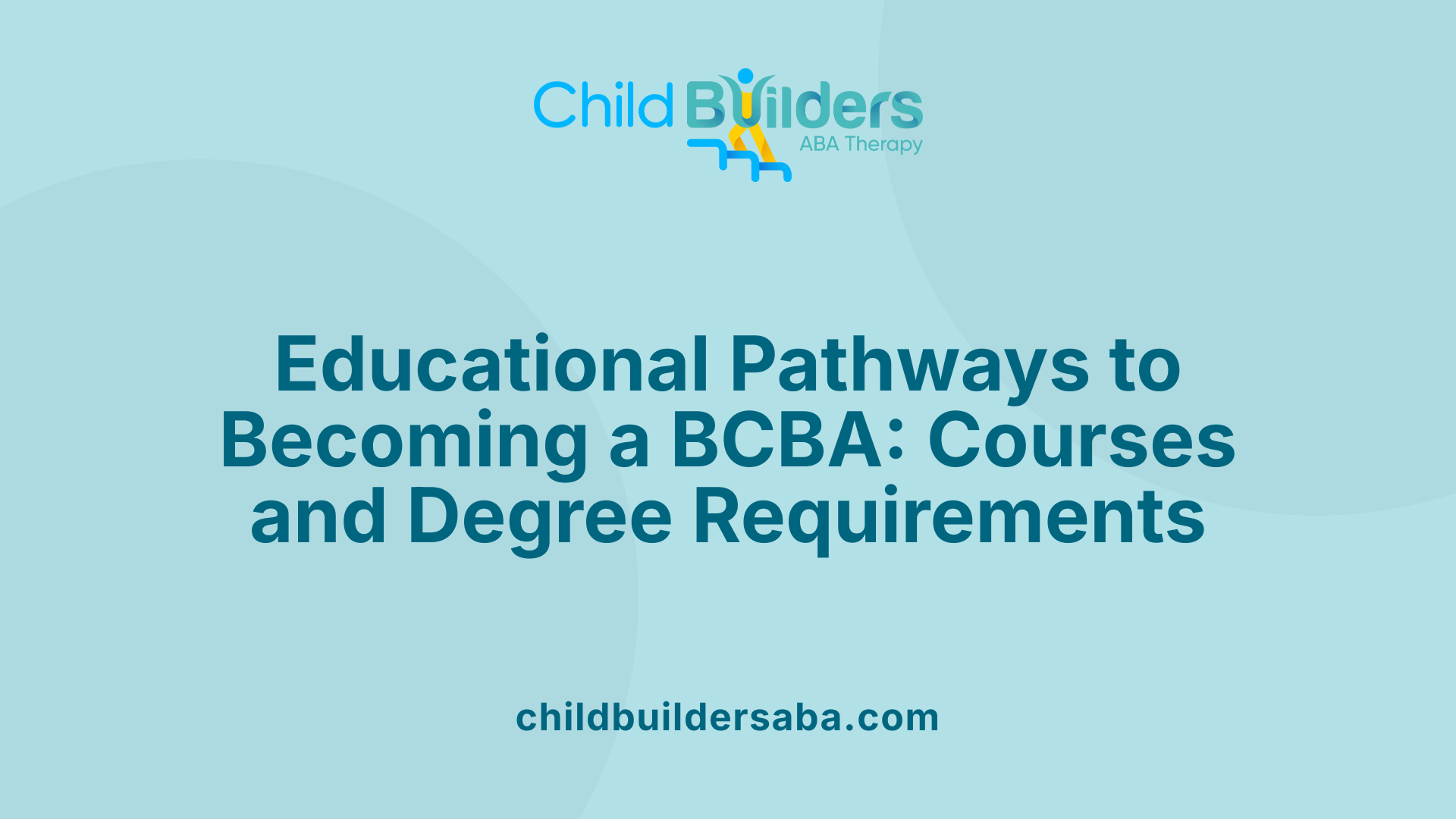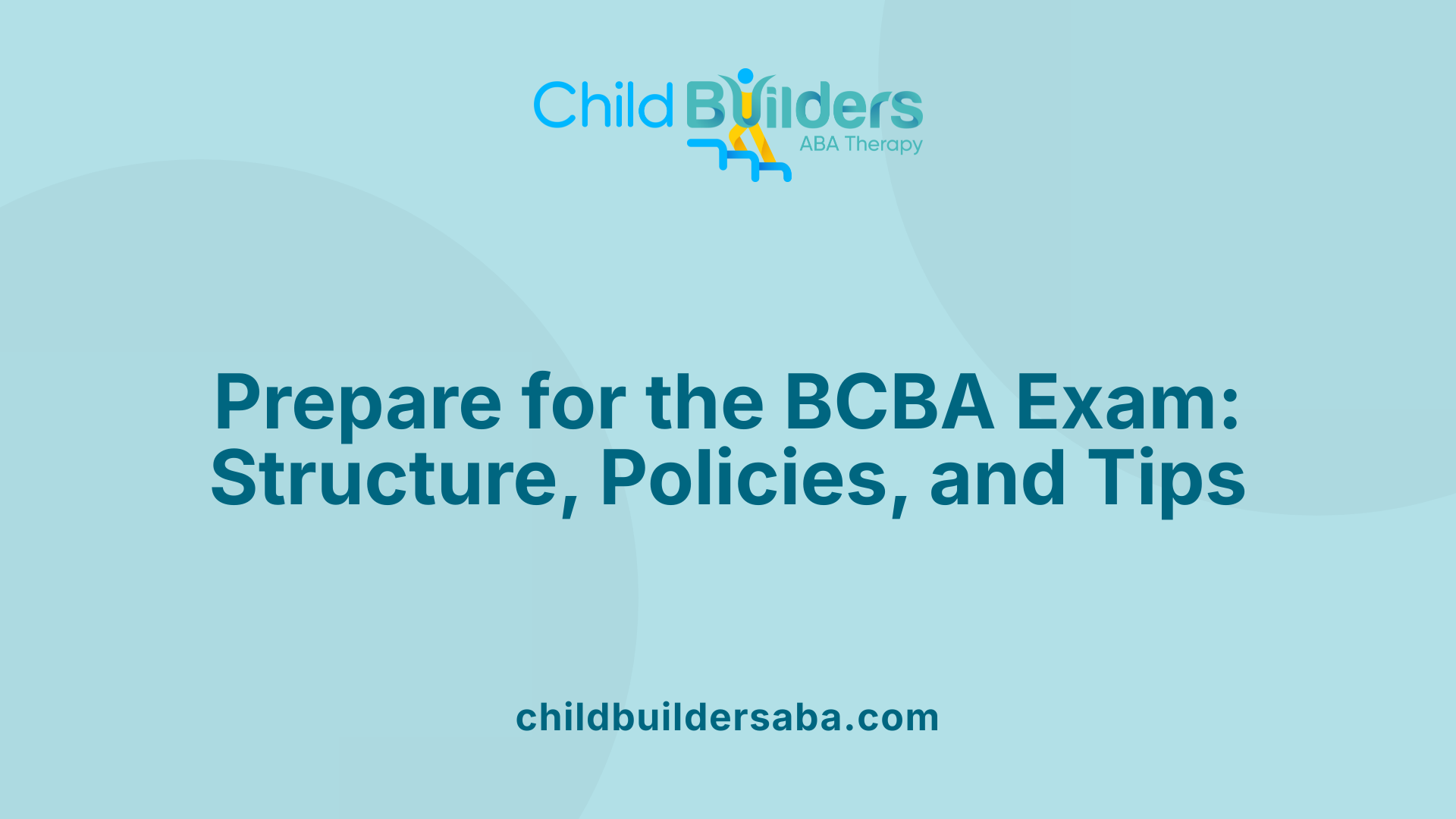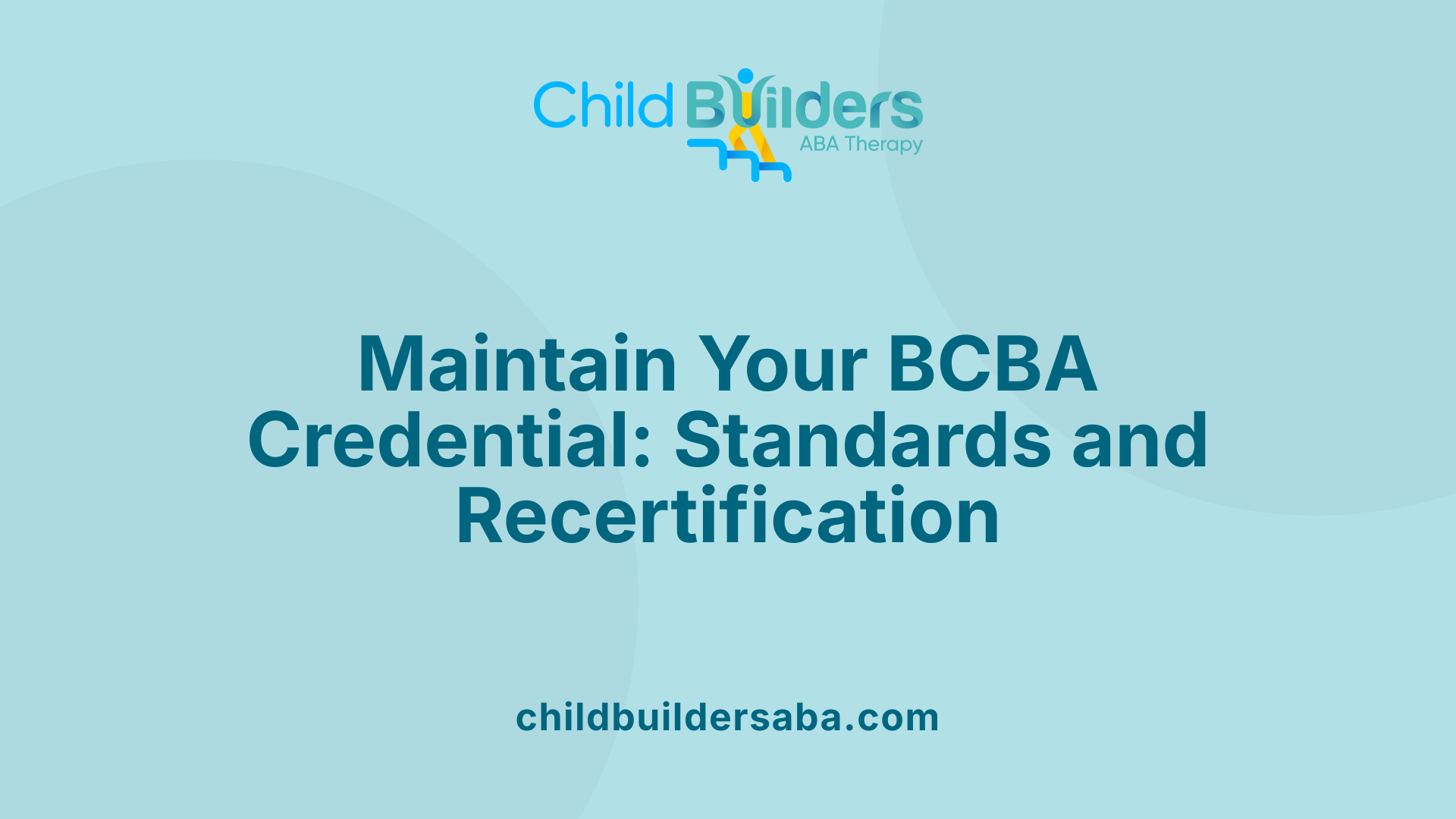How To Become A Board Certified Behavior Analyst (BCBA)

Introduction to the Pathway for Aspiring BCBAs
Becoming a Board Certified Behavior Analyst (BCBA) is a structured process that requires dedication, education, and practical experience. As the demand for professionals in behavior analysis continues to grow exponentially, understanding the pathway to certification is crucial for anyone looking to establish a meaningful career in this rewarding field.
Understanding the BCBA Certification and Role

What is a BCBA?
A Board Certified Behavior Analyst (BCBA) is a graduate-level credential awarded by the Behavior Analyst Certification Board (BACB). It signifies that an individual has met rigorous educational and practical experience standards in behavior analysis. BCBAs are qualified to practice independently, providing therapy, conducting assessments, developing behavior intervention plans, and supervising others in the field. Their work is particularly influential in supporting individuals with autism, developmental disabilities, and other behavioral challenges.
What are the roles, responsibilities, and benefits of being a BCBA?
BCA’s hold a vital role in the application of behavior analysis principles to improve clients’ lives. They design and oversee behavior intervention programs tailored to individual needs, ensuring interventions are ethical and effective. BCBAs also supervise assistants and support staff, analyze data to track progress, and collaborate closely with families, educators, and healthcare professionals.
The profession offers numerous advantages.
- Impactful Work: BCBAs help clients achieve meaningful behavioral improvements, often in critical areas like communication skills, independence, and social interaction.
- Recognition and Respect: They are recognized as highly qualified professionals within healthcare, education, and community service sectors.
- Financial Benefits: The average annual salary for BCBAs is around $82,816, with potential for higher earnings based on experience and location.
- Career Opportunities: Growing demand for BCBAs opens doors to employment across various settings such as clinics, schools, residential programs, and private practices.
In summary, earning a BCBA certification not only affirms advanced expertise in behavior analysis but also provides a rewarding career helping individuals make lasting positive changes.
Educational Foundations and Coursework Requirements

What are the educational requirements and coursework needed to become a BCBA?
To qualify for the BCBA credential, candidates must first earn a master’s degree from an accredited university in behavior analysis, psychology, or a related field. This degree should include specific coursework aligned with the standards set by the Behavior Analyst Certification Board (BACB).
The coursework must cover essential areas such as ethics, behavioral assessment, measurement and experimental design, intervention strategies, and behavior change procedures. A total of at least 270 to 315 hours of verified coursework is required, corresponding to the BACB’s Fifth Edition Task List.
Applicants can meet these coursework standards through a Verified Course Sequence (VCS) offered by programs recognized by the BACB or through accredited graduate programs that include all required content areas. The coursework must be recent, generally completed within the last ten years, and submissions must be thoroughly documented via official transcripts.
What are the eligibility criteria for applying to become a BCBA?
Beyond completing the necessary coursework, prospective BCBA candidates must fulfill certain eligibility criteria. They need to demonstrate holding a relevant graduate degree from an accredited institution.
In addition, they must document the coursework completed, ensuring it meets BACB standards. Practical experience is also a core requirement; applicants must accumulate between 1,500 to 2,000 hours of supervised fieldwork, which involves direct application of the skills learned.
Supervised experience must be conducted under the oversight of a qualified supervisor, typically a current BCBA or equivalent credentialed professional, following strict guidelines to ensure competency.
Once these prerequisites are met, applicants can submit their application through the BACB, pay the required fees, and prepare for the certification exam. Passing this exam is essential to achieving BCBA certification.
This structured pathway ensures that only well-qualified individuals, with verified education and substantial supervised practical experience, can practice as independent behavior analysts, promoting high standards of service and ethical practice.
Supervised Fieldwork and Practical Experience

What is the process for obtaining supervised fieldwork experience to become a BCBA?
To qualify for BCBA certification, candidates must accumulate between 1,500 and 2,000 hours of supervised practical experience in applied behavior analysis (ABA). This experience should be completed over a period of up to five years, providing flexibility to accommodate individual educational and personal timelines.
The supervised hours include a mix of restricted and unrestricted activities. Restricted activities involve direct intervention procedures, behavior change programs, and data collection. Unrestricted activities encompass a broader range of professional practices, such as conducting assessments, staff training, and participating in team meetings.
Supervision must be conducted by a qualified BCBA or BCBA-D with at least one year of post-certification experience. The supervisor is responsible for providing consistent guidance, observing the candidate’s performance, and offering feedback. Each month, candidates are expected to have at least two face-to-face supervision contacts, which can be individual or group sessions, with individual supervision preferred when possible.
Thorough documentation is crucial throughout this process. Supervisors need to verify each logged hour with detailed records including dates, activities performed, and supervision session summaries. Supervision agreements and logs are often submitted as part of the certification application package to confirm that candidates meet the experience requirements.
How long does the certification process typically take?
The overall pathway to BCBA certification generally spans about 1.5 to 3 years. This timeframe accounts for completion of graduate coursework, supervised practical hours, and exam preparation. Candidates who progress quickly through coursework and accumulate supervised hours may approach the shorter end of this timeline.
Once all prerequisites are fulfilled, candidates can schedule their certification exam through Pearson VUE, the official testing service. The exam itself is a four-hour, computer-based test with 160 multiple-choice questions. Results are typically provided immediately at the testing site, with official confirmation sent via email within about one week.
This duration can vary depending on individual circumstances. Factors influencing the timeline include the availability of supervision, exam scheduling, and the time needed for study and review. Overall, candidates should plan for a comprehensive preparation period, considering their personal and professional commitments.
More Information
For detailed guidance on the supervised fieldwork process for BCBA qualification, candidates can search for resources and official BACB documentation using keywords like 'Supervised fieldwork process for BCBA qualification.' This will provide current standards, documentation templates, and tips for successfully completing the supervised experience required for certification.
The Certification Examination: Structure and Policies

What are the details and policies of the BCBA certification exam?
The BCBA exam is a comprehensive multiple-choice test designed to assess a candidate’s knowledge of behavior analysis principles and practical application. It consists of 185 questions that must be completed within four hours. The exam is administered at Pearson VUE testing centers located worldwide, providing a convenient testing environment for candidates.
To qualify for the exam, applicants need to meet specific eligibility conditions, such as holding a relevant graduate degree and completing supervised fieldwork hours. They also pay an exam fee, which is approximately $245, plus any additional charges from the testing centers or booking platforms.
Scheduling the exam is done through the behavior analysts' certification body, the BACB, and Pearson VUE’s online platform. Candidates choose their preferred test date and location, ensuring flexibility to suit individual needs. On the test day, candidates must bring valid identification and follow strict test security policies to maintain exam integrity.
After completing the exam, test-takers receive immediate preliminary results at the testing site. Official scores and certification decisions are emailed within about one week. The focus areas of the exam include measurement, assessment, behavior intervention, and ethical practice, which are aligned with the BACB’s comprehensive Content Outline.
Standards, Licenses, and Continuing Education

What are the current standards and updates in BCBA licensing and certification?
The Behavior Analyst Certification Board (BACB) establishes clear guidelines for maintaining BCBA certification. Recertification occurs every two years and requires practitioners to complete 32 continuing education units (CEUs), with at least 4 hours dedicated to ethics training. These standards ensure that BCBAs stay current with advancements and uphold ethical practices.
State licensure is typically an additional requirement, varying across regions. Most states require proof of BACB certification, adherence to ethical standards, and may impose background checks or other licensing procedures. Recent updates from the BACB include streamlining recertification procedures, shortening renewal response times, and clarifying the validity periods for coursework. These updates aim to preserve the quality and relevancy of behavior analysis services.
Maintaining certification and licensure not only reaffirms a practitioner’s competence but also supports ongoing professional growth, which is crucial in a rapidly evolving field like behavior analysis.
How can I pursue educational pathways and professional development to become a BCBA?
Aspiring BCBAs should start by completing a graduate program accredited by the ABAI or recognized as a Verified Course Sequence (VCS). These programs include coursework in ethical conduct, research methods, applied behavior analysis principles, and assessment and intervention strategies.
In addition to coursework, supervised fieldwork is essential. Candidates typically need 1,500 to 2,000 hours of supervised experience, which can be gained during or after graduate studies. Engaging in workshops, conferences, and current research helps deepen understanding and skills.
Preparation for the BCBA exam involves thorough review of the exam content outline, which covers measurement, assessment, intervention, and ethical considerations. Success in the exam enables certification, and ongoing professional development through CEUs is necessary for recertification.
Continuing education and engagement with current advancements ensure BCBAs deliver effective, ethical, and innovative services to individuals and organizations.
| Aspect | Requirements | Notes |
|---|---|---|
| Certification renewal | 32 CEUs every 2 years | Includes 4 hours of ethics training |
| State licensure | Proof of BCBA certification | Varies by state, may include background checks |
| Education pathways | Verified graduate coursework | Accredited program or VCS |
| Supervised experience | 1,500-2,000 hours | During or after graduate program |
| Exam details | 160 questions, 4 hours | Administered via Pearson VUE |
| Professional growth | Workshops, research, conferences | Continuous learning essential |
This pathway ensures that behavior analysts remain proficient, ethical, and updated with the latest practices, ultimately benefiting the clients they serve.
Career Outlook and Professional Opportunities

What is the career outlook and professional opportunities for BCBAs?
The employment landscape for Board Certified Behavior Analysts (BCBAs) is experiencing remarkable growth. In fact, job postings for BCBAs increased by approximately 58% from 2023 to 2024, highlighting a strong and expanding demand for professionals in this field.
B enough career options are available across various settings. BCBAs are employed in hospitals, educational institutions, clinics, and research organizations. Emerging roles are also developing in areas such as law enforcement, corporate wellness initiatives, and community outreach programs. This diversification reflects the versatile application of behavior analysis principles.
Salaries for BCBAs are competitive and tend to rise with experience and specialization. The average annual salary is around $78,853, with higher earnings typically observed in states with greater demand, such as California, Texas, and Florida. In high-demand regions, experienced BCBAs can earn significantly more, making this a financially rewarding profession.
The growing awareness of behavioral health issues and increased autism diagnosis rates fuel the need for qualified behavior analysts. As a result, career prospects remain strong and offer opportunities for ongoing professional development. Many BCBAs advance to supervisory roles, research positions, or specialized consultancy, further enhancing their career trajectory.
Overall, the outlook for BCBAs is highly positive. The combination of expanding employment opportunities and increasing recognition of behavioral health's importance ensures a sustained demand for skilled practitioners. For individuals seeking a fulfilling and impactful career, the behavior analysis field provides promising growth prospects and rewarding work environments.
| Aspect | Details | Additional Notes |
|---|---|---|
| Job demand & growth | 58% increase in postings (2023-2024) | Reflects high industry expansion |
| Work environments | Hospitals, schools, clinics, research, law enforcement, corporate | Diverse settings allow specialization |
| Salary expectations | Average $78,853; higher in high-demand states | Salary varies based on experience and location |
| Geographic differences | Elevated salaries in California, Texas, Florida | Demand correlates with autism diagnosis rates |
This dynamic growth, coupled with varied employment settings and competitive compensation, makes behavior analysis a compelling career choice for aspiring clinicians and researchers alike.
Embark on Your Journey to Impact Lives
Becoming a BCBA is a rigorous but rewarding process that opens doors to a meaningful career dedicated to improving behaviors and lives. By following the structured pathway involving education, supervised experience, and certification, aspiring professionals can meet the high standards required and join a thriving field with excellent growth prospects and the opportunity to make a difference every day.
References
- Board Certified Behavior Analyst
- How to Become a Board Certified Behavior Analyst (BCBA): Five Steps
- How to Become a Board-Certified Behavior Analyst (BCBA)
- Board Certified Behavioral Analyst Career Overview - Psychology.org
- BACB - Behavior Analyst Certification Board
- How to Become a BCBA - Arizona Online
- How To Become a Board Certified Behavior Analyst

























.jpg)











































































